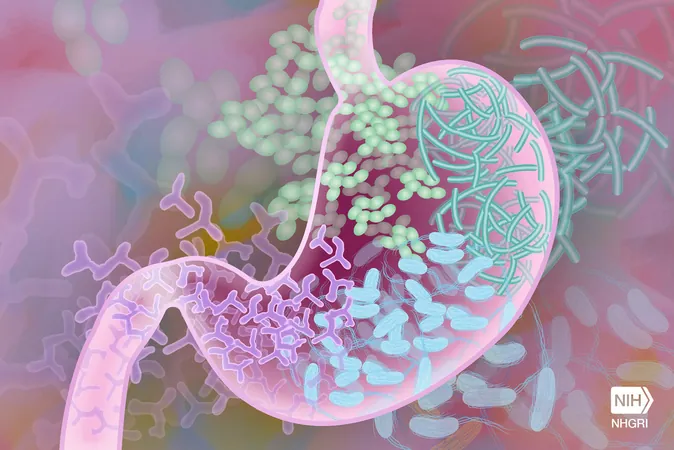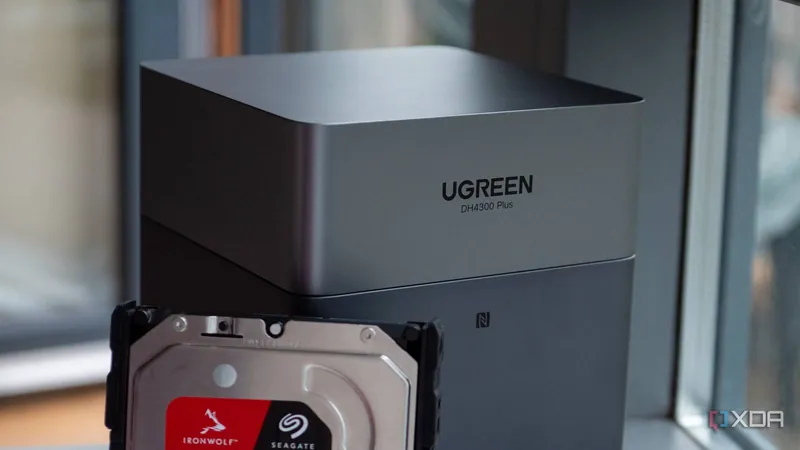
Revolutionary Engineered Bacteria Boost Survival Rates in Colorectal Cancer Treatment
2025-09-22
Author: Yu
Game-Changing Bacteria in the Fight Against Colorectal Cancer
A groundbreaking study from the Yong Loo Lin School of Medicine at the National University of Singapore and Central South University in China has unveiled an engineered strain of gut-homing bacteria that could significantly enhance survival rates for colorectal cancer (CRC) patients. This innovative approach merges synthetic biology with cutting-edge cancer immunotherapy.
How Do Antitumor Immune Responses Work?
Antitumor immune responses act as the body's natural defense mechanism against cancer, identifying and eliminating rogue cells like tumors. By utilizing the immune system's innate capabilities, this therapy aims to selectively target and destroy cancer cells while sparing healthy tissues, unlike conventional methods such as chemotherapy and radiation.
The Challenge of Immune Evasion
Despite these advances, cancer cells often find ways to evade immune detection, fostering a microenvironment that shields them from attacks. Enhancing these immune responses is crucial, as it can lead to better treatment outcomes and extend patient survival.
A Dire Need for New Treatments
With colorectal cancer being the second leading cause of cancer-related deaths globally—accounting for over 9% of all cancer fatalities—the demand for innovative treatment options is urgent. The research team aims to create a new wave of synbiotic therapies by engineering bacteria that specifically target tumors while stimulating immune activity.
Promising Results from Engineered Salmonella
In their research published in *Science Translational Medicine*, scientists demonstrated that a genetically modified strain of *Salmonella typhimurium* could invade tumors and release a therapeutic protein called LIGHT. This protein facilitates the development of mature tertiary lymphoid structures (mTLSs), which are crucial for improved survival rates and enhanced treatment efficacy in CRC.
Experts Weigh In on the Findings
Professor Shawn Chen Xiaoyuan, leading the study, emphasized the significance of inducing mTLSs through synthetic biotics, stating, "Our engineered strain activates critical immune pathways to initiate robust antitumor responses." The treatment not only inhibited tumor growth but also restored healthy gut microbiota and exhibited excellent compatibility in laboratory models.
A Glimpse into the Future of Cancer Treatment
Co-lead author Professor Pengfei Rong highlighted the potential of this approach to create 'living medicines' capable of modifying the tumor environment from within. Now, the team is gearing up for thorough testing and plans to advance their research into human clinical trials to evaluate safety and effectiveness.
Final Thoughts: A Beacon of Hope
As researchers push forward with this exciting development, the prospect of a new treatment pathway for colorectal cancer patients brings hope for improved outcomes and extended survival in the face of a challenging disease.




 Brasil (PT)
Brasil (PT)
 Canada (EN)
Canada (EN)
 Chile (ES)
Chile (ES)
 Česko (CS)
Česko (CS)
 대한민국 (KO)
대한민국 (KO)
 España (ES)
España (ES)
 France (FR)
France (FR)
 Hong Kong (EN)
Hong Kong (EN)
 Italia (IT)
Italia (IT)
 日本 (JA)
日本 (JA)
 Magyarország (HU)
Magyarország (HU)
 Norge (NO)
Norge (NO)
 Polska (PL)
Polska (PL)
 Schweiz (DE)
Schweiz (DE)
 Singapore (EN)
Singapore (EN)
 Sverige (SV)
Sverige (SV)
 Suomi (FI)
Suomi (FI)
 Türkiye (TR)
Türkiye (TR)
 الإمارات العربية المتحدة (AR)
الإمارات العربية المتحدة (AR)